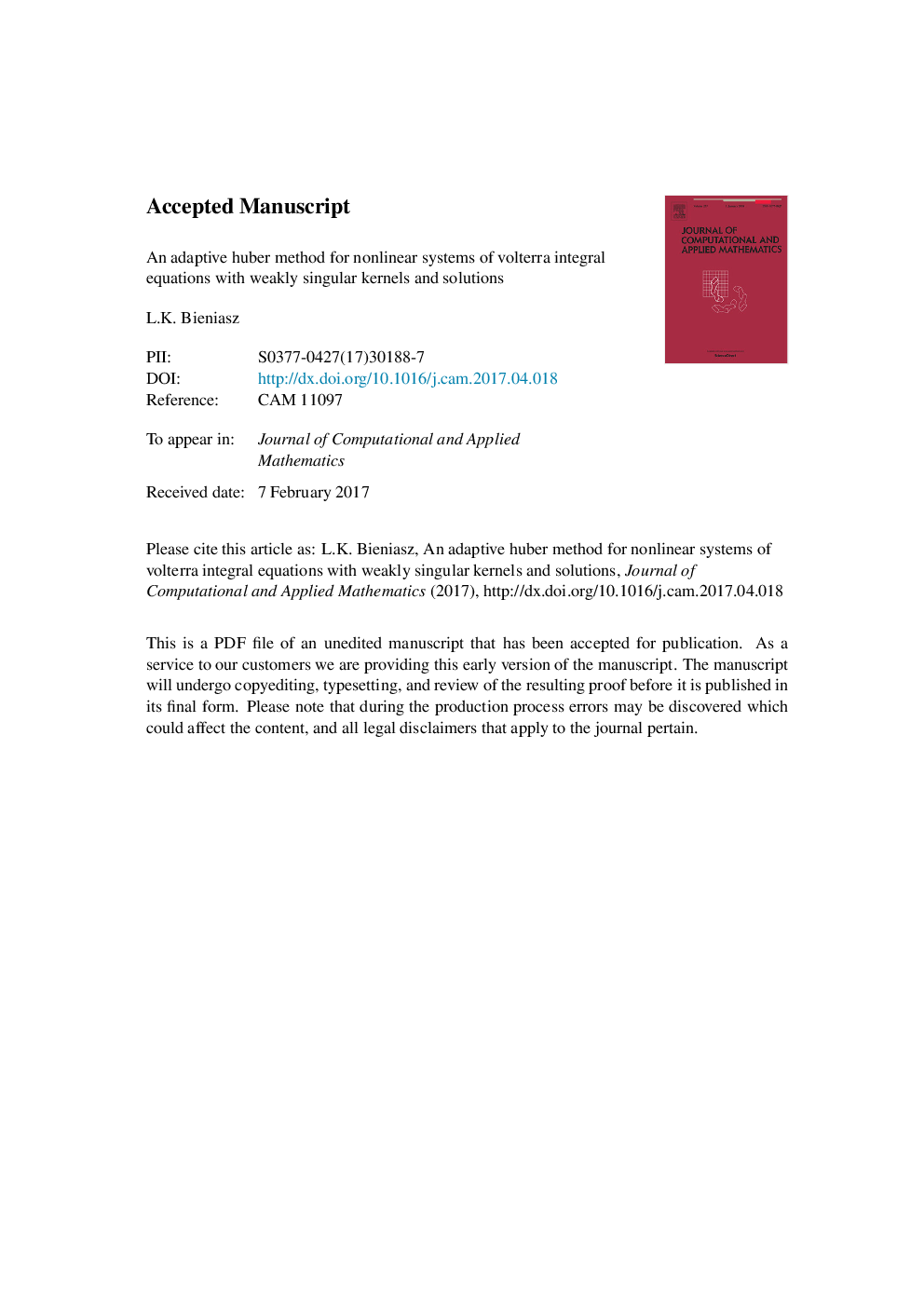| Article ID | Journal | Published Year | Pages | File Type |
|---|---|---|---|---|
| 5776309 | Journal of Computational and Applied Mathematics | 2017 | 22 Pages |
Abstract
Numerical methods for solving nonlinear systems of weakly singular Volterra integral equations (VIEs) possessing weakly singular solutions appear almost nonexistent in the literature, except for a few treatments of single first kind Abel equations. To reduce this gap, an extension is presented, of the adaptive Huber method designed for VIEs with singular kernels such as K(t,Ï)=(tâÏ)â1/2 and K(t,Ï)=exp[âλ(tâÏ)](tâÏ)â1/2 (where λâ¥0) and a variety of nonsingular kernels. The method was thus far restricted to bounded solutions having at least two derivatives. Under a number of assumptions specified, the extension applies to solutions Uμ(t) that can be written as sums of singular components cμtâ1/2 (with unknown coefficients cμ), and nonsingular components U¯μ(t). In the solution process, factor tâ1/2 is handled analytically, whereas cμ and U¯μ(t) are determined numerically. Computational experiments reveal that the extended method determines singular solutions equally well as the unextended method determined nonsingular solutions. The method is intended primarily for a class of VIEs encountered in electroanalytical chemistry, but it can also be of interest to other application areas.
Keywords
Related Topics
Physical Sciences and Engineering
Mathematics
Applied Mathematics
Authors
L.K. Bieniasz,
